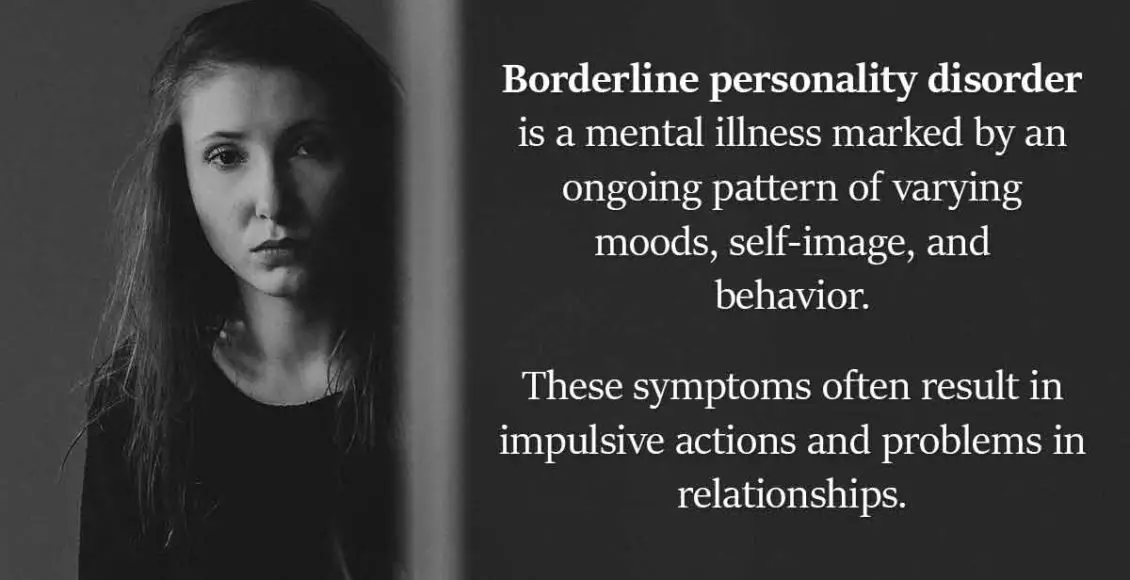How to Recognize 4 Common Signs of Borderline Personality Disorder
And Where to go From There

Borderline Personality Disorder (BPD) has gained a lot of attention recently as more and more of its victims have come into the limelight.
The National Institute of Mental Health (NIMH) defines BPD as “a mental illness marked by an ongoing pattern of varying moods, self-image, and behavior. These symptoms often result in impulsive actions and problems in relationships. People with borderline personality disorder may experience intense episodes of anger, depression, and anxiety that can last from a few hours to days.”
Doesn’t really seem like it can be easily recognized, right?
We’ve found 4 key earmarks of this particular mental illness that occur within most BPD patients.
1. People with BPD often engage in self-harm.
Furthermore, they are often good at disguising this from friends and loved ones…if it’s happening, you may not know about it. Self-harm runs a vast gamut from things like sending an email off that can get them fired to cutting, abusing medication and other physically demonstrative abuse. Telltale signs of self-harm to watch for include secrecy, avoiding certain activities and being “sick” or otherwise unable to participate in things with friends and loved ones.
Part of this problem is that these occasions often seem like one-off events, because they don’t happen with any significant frequency throughout one particular relationship. This can make it easy to consider that maybe your friend is just being momentarily unreasonable. It’s important to keep an eye out if you have reason to be concerned, and watch this person carefully.
2. People who have BPD often have an upbringing that includes a lot of instability.
People with BPD started out as, often, children who couldn’t trust or rely upon an adult authority figure in their lives while growing up. They often felt a sense of abandonment, as is one of the hallmarks of BPD in adults.
3. BPD patients have considerable instability in their personal relationships.
If you’ve dealt with such a person as a partner, they may seem crazy about you, madly in love with you, totally excited about the relationship and then suddenly causing drama, inciting arguments and possibly even becoming violent. If you’re a friend of someone with BPD, the speed at which you’ll go from “a friend” to “my BFF 4-EVA!” may surprise you. And then they may suddenly disengage from you without a thought or any kind of closure. It can be frustrating and disappointing, but it’s a hallmark of a person suffering from BPD.
4. People suffering from BPD also are likely to further destabilize by hinging parts of their personalities on their relationships with other people.
If you’re a BPD sufferer’s “BFF 4-EVA!” don’t be surprised when they start trying to be more like you, down to the way you dress, your hobbies and activities, and your friends. BPD sufferers will often recount the many pursuits and activities they were involved in prior to treatment, only to discover that those activities and pursuits had nothing to do with who they were or what they wanted. It’s very difficult to develop solid self-esteem when you are basically changing your priorities constantly to fit those of the people whose attention you so desperately seek.
BPD also does, most researchers believe, have a genetic component, but it’s not known at this time how significant a factor that is.
Fortunately for BPD sufferers and the people they love, BPD is a disorder that responds very well to treatment. Cognitive behavioral therapy, known as CBT or “talk therapy” has been used extensively to treat this particular disorder with high success rates. There is no specific standardized treatment plan for those suffering from BPD, but cognitive behavioral therapists report a marked change towards the more healthy patient as patients progress through therapy.
Think you or someone you love could benefit from treatment for BPD?
Here’s an excellent resource for you: the NIMH page on this particular disorder.


